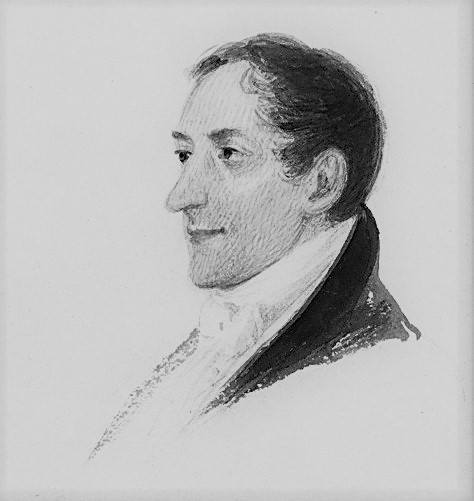Dialogue-poetry was not restricted to scintillating exchanges among scholars in India. Though rare, there are instances where this form of dialogue took place with foreigners as well. The current example captures an episode that is more morose than cheerful.
As India was losing its sovereignty to the British, William Bentinck, who rose up to become the Governor General of British India, laid the foundation for an English education that was centred around the church all over the country. He was motivated by the infamous report submitted by Macaulay in 1835. No doubt that the knowledge of English was useful and we are reaping its benefits even today, but the seeds sown then were also used to crush and weed out native languages and cultures. Since then, a few generations have grown up in this haze of imagined superiority that is imparted by English education, and they now consider themselves to be the educated elite in India, but they have remained Indian only in terms of the colour of their skin. This false pride in a toxic, imposed identity and the concomitant hypocrisy have taken deep roots in our society. These people constantly deny their origins and are filled with ignorance, arrogance and contempt for anything Indian. India and the world at large cannot be at peace until this falseness is exposed and overcome.
Coming back to the historical context, Bentinck was responsible for shutting down several pāṭhaśālās, the traditional centres of Sanskrit learning. Goḻiśrī Saṃskṛta-pāṭhaśālā was one of them. The so-called intellectuals of today might consider the closing down of such Sanskrit learning centers as a welcome move, since they believe that Sanskrit education was restricted to only a certain privileged sect, to the exclusion of others. However, they might encounter a different reality if only they would read Dharampal’s Beautiful Tree, Bhāratīya cit-mānas-kāl (in Hindi), Science and Technology in Eighteenth Century India, and other works. These works reflect the ground realities as seen through the eyes of the British, and could show these intellectuals how unfairly biased their perspective is.
The head of the Goḻiśrī Saṃskṛta-pāṭhaśālā, Premacandra-vāgīśa, came to know of the plans for closing down the institution, and wrote to H. H. Wilson, the famous British Sanskrit scholar. Wilson had been responsible for appointing teachers to the institution, and it was only apt to inform him about its closure. Premacandra’s letter contains a touching request:
Premacandra-vāgīśa
अस्मिन् संस्कृतपाठपद्मसरसि त्वत्स्थापिता ये सुधी-
हंसाः कालवशेन पक्षरहिता दूरङ्गते ते त्वयि ।
तत्तीरे निवसन्ति संहतशरा व्याधास्तदुच्छित्तये
तेभ्यस्त्वं यदि पासि पालक तदा कीर्तिश्चिरं स्थास्यति ।१।
“In this Sanskrit college you established,
which is like a lotus-pond,
all the scholar-swans have gone away,
having lost their patronage
through the adversity of time
Hunters on its shores
have their arrows aimed at us,
waiting merely for
the right moment to shoot
If you would only protect us from them,
your fame will be secured forever.”
As soon as Wilson read the letter, he sent his reply in the form of four anuṣṭup verses:
H. H. Wilson
विधाता विश्वनिर्माता
हंसस्तत्प्रियवाहनम् ।
अतः प्रियतरत्वेन
रक्षिष्यति स एव तत् ।२।
"The swan is the beloved vehicle of the creator
So he will certainly protect it with his love.”अमृतं मधुरं सम्यक्
संस्कृतं हि ततोऽधिकम् ।
देवभोग्यमिदं यस्माद्
देवभाषेति कथ्यते ।३।
"Nectar is sweet, Sanskrit is sweeter
Thus it is worthy of Gods; this is also why
it’s known as the language of Gods.”न जाने विद्यते किञ्चिन्
माधुर्यमिह संस्कृते ।
सर्वदैव समुन्मत्ता
येन वैदेशिका वयम् ।४।
"I know not what sweetness Sanskrit embodies;
even we, strangers from other lands,
are intoxicated by it forever.”यावद्भारतवर्षं स्याद्
यावद्विन्ध्यहिमाचलौ ।
यावद्गङ्गा च गोदा च
तावदेव हि संस्कृतम् ।५।
"As long as India exists, as long as
the Himālayas and the Vindhyās stand,
so long as Gaṅgā and Godāvarī flow,
will Sanskrit last.”
Wilson’s reply was encouraging, but Premacandra found little practical use in it. Dissatisfied, he wrote back to him:
Premacandra-vāgīśa
गोळिश्रीदीर्घिकायां बहुविटपितटे कालिखातानगर्यां
निस्सङ्गो वर्तते संस्कृतपठनमहासद्ग्रुहाख्यः कुरङ्गः ।
हन्तुं तं भीतचित्तं विधृतखरशरो मेकलेव्याधराजः
साश्रुर्ब्रूते स भो भोः सुविलसन! महाभाग! मां रक्ष रक्ष ।६।
"In the city of Calcutta, amidst lush greenery,
rests the Sanskrit college by the side of Lake Goḻiśrī,
looking like a timid and innocent deer
Through a sad turn of fate, Macaulay, the cruel hunter,
is about to shoot it with his sharp shafts
Wilson! This poor animal calls out to you tearfully,
pleading for help in your name.”
Premacandra’s verse reflects the helplessness that Indians faced, and the heartlessness of the British. Wilson’s reply was:
H. H. Wilson
निष्पिष्टापि परं पदाहतिशतैः शश्वद्बहुप्राणिनां
सन्तप्तापि करैः सहस्रकिरणेनाग्निस्फुलिङ्गोपमैः ।
छागाद्यैश्च विचर्चितापि सततं मृष्टापि कुद्दालकै-
र्दूर्वा न म्रियते तथापि नितरां धातुर्दया दुर्बले ।७।
"Despite being stepped upon by hundreds of living beings,
burnt by the fiery rays of the sun,
being eaten constantly by goats, sheep, and cattle
and being dug out with pick-axes, grass does not die
God indeed has a lot of compassion for the weak.”
Though it is a fine verse, it did nothing to solve the problem. We are not aware of any action taken by Wilson to save the school. But the verses still stand as testimony to a terrible calamity.
Translated by Arjun Bharadwaj and Shashi Kiran B N from the original Kannada.
This is an extract from the upcoming work ‘Stories Behind Verses’ – an English adaptation of Shatavadhani Dr. R Ganesh’s Kannada classic ‘Kavitegondu Kathe.’
















































